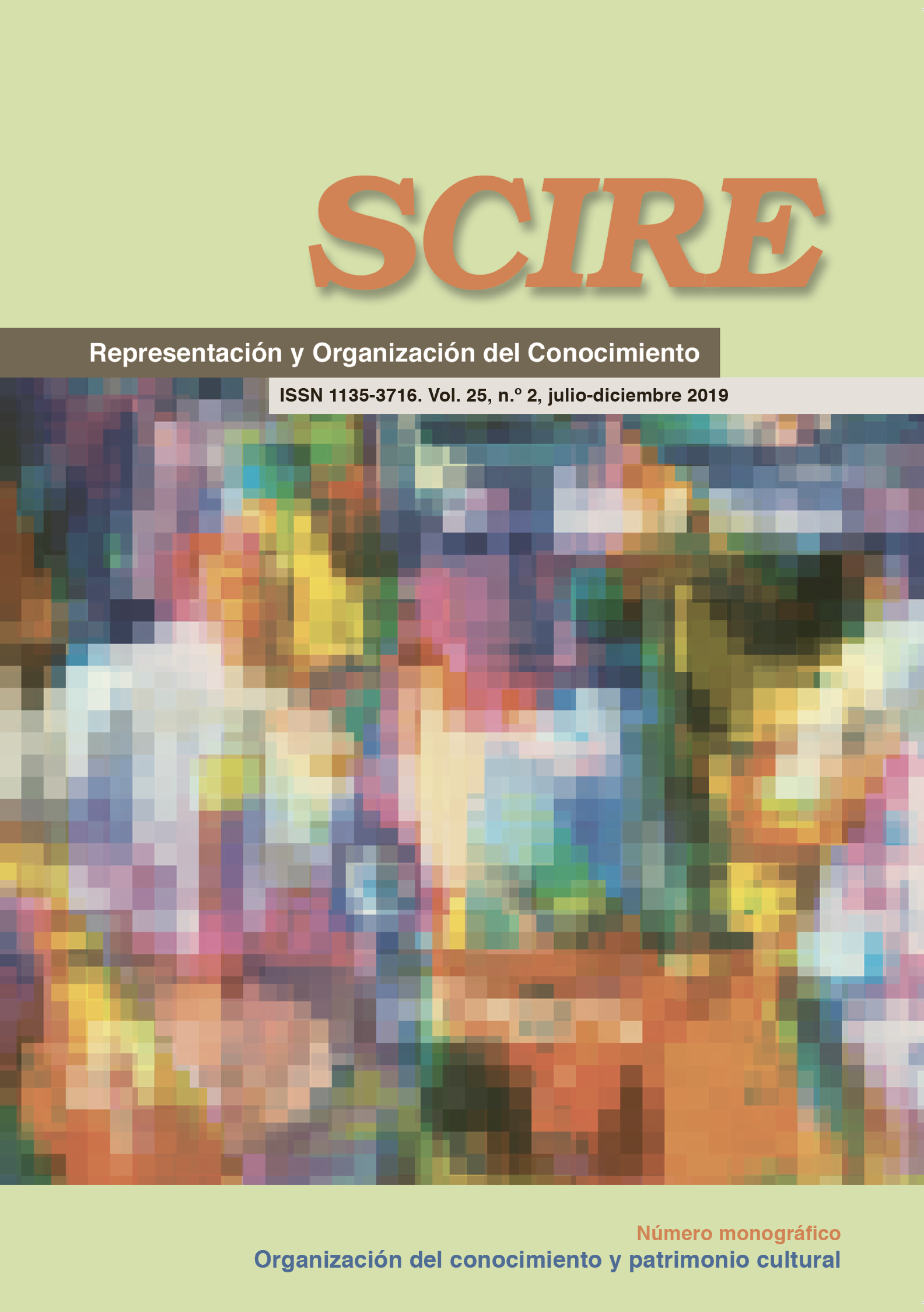Ontogeny of the DDC's 780 division (music)
A preliminary analysis of the 20th edition
DOI:
https://doi.org/10.54886/scire.v25i2.4633Abstract
The general objective of this study is to demonstrate the importance and the impact that the modifications made in the DDC’s 20th edition brought to the music class. For this purpose, the titles of the first level subsections (.1-.9) of division 780 in DDC issues 18, 19 and 20 were analyzed. The methodology chosen for this study was a multi-faceted ontogeny analysis. As a result, it is possible to affirm that the editorial exchange carried out to broaden the cultural context in the DDC, were relevant for the conceptual revision and the breaking of biases previously verified in the music class. The analysis demonstrated how a classification scheme can not solve problems generated by a specific domain alone, necessitating the addition of other forms of organization (as discussed in division 780). The organization and treatment of documents in music is still under development in the area of Librarianship and Information Science, so this research can contribute to provide theoretical assumptions and other perspectives to future works.
Downloads
Downloads
Published
How to Cite
Issue
Section
License
Copyright (c) 2019 Authors retain their copyright, but transfer the exploitation rights (reproduction, distribution, public communication and transformation) to the journal in a non-exclusive way and guarantee the right to the first publication of their work to the journal, which will be simultaneously subjected to the license CC BY-NC-ND. Authors take whole personal responsibility on fulfilling all the appropiate ethical codes and laws, and obtaining all the necessary copyright permissions regarding their articles. Institutional and self- archiving is allowed and encouraged.

This work is licensed under a Creative Commons Attribution-NonCommercial-NoDerivatives 4.0 International License.
© 1996- . Authors retain their copyright, but transfer the exploitation rights (reproduction, distribution, public communication and transformation) to the journal in a non-exclusive way and guarantee the right to the first publication of their work to the journal, which will be simultaneously subjected to the license CC BY-NC-ND. Authors take whole personal responsibility on fulfilling all the appropiate ethical codes and laws, and obtaining all the necessary copyright permissions regarding their articles. Institutional and self- archiving is allowed and encouraged.




